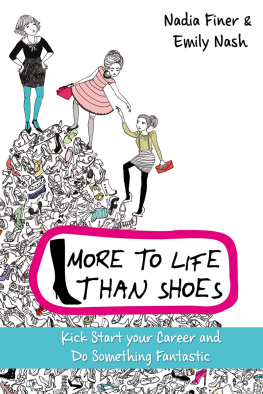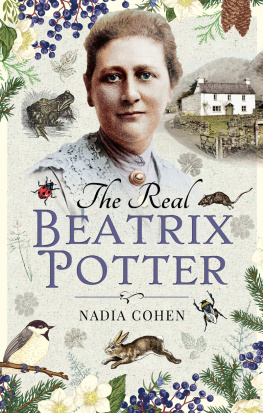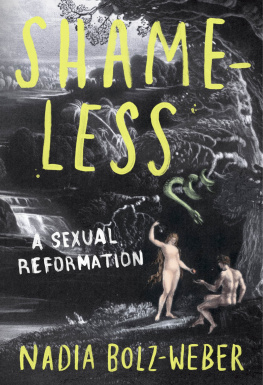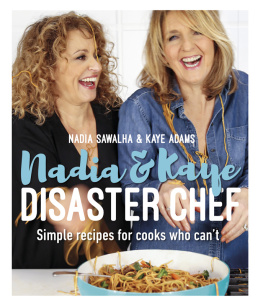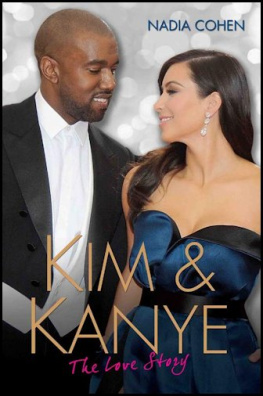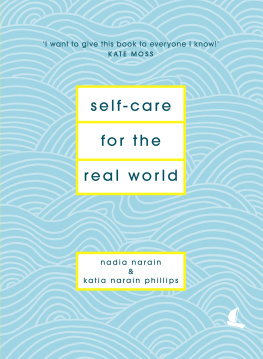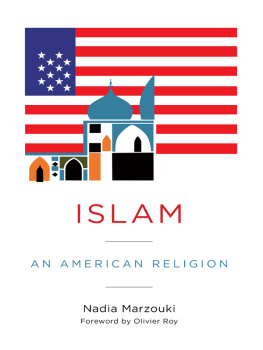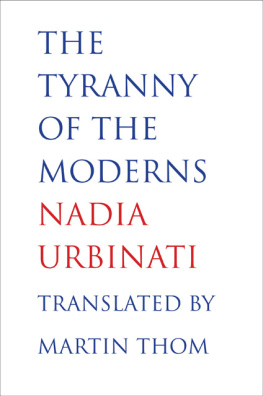Nadia Wassef - Shelf Life
Here you can read online Nadia Wassef - Shelf Life full text of the book (entire story) in english for free. Download pdf and epub, get meaning, cover and reviews about this ebook. year: 2021, publisher: Farrar, Straus and Giroux, genre: Romance novel. Description of the work, (preface) as well as reviews are available. Best literature library LitArk.com created for fans of good reading and offers a wide selection of genres:
Romance novel
Science fiction
Adventure
Detective
Science
History
Home and family
Prose
Art
Politics
Computer
Non-fiction
Religion
Business
Children
Humor
Choose a favorite category and find really read worthwhile books. Enjoy immersion in the world of imagination, feel the emotions of the characters or learn something new for yourself, make an fascinating discovery.

- Book:Shelf Life
- Author:
- Publisher:Farrar, Straus and Giroux
- Genre:
- Year:2021
- Rating:3 / 5
- Favourites:Add to favourites
- Your mark:
- 60
- 1
- 2
- 3
- 4
- 5
Shelf Life: summary, description and annotation
We offer to read an annotation, description, summary or preface (depends on what the author of the book "Shelf Life" wrote himself). If you haven't found the necessary information about the book — write in the comments, we will try to find it.
Shelf Life — read online for free the complete book (whole text) full work
Below is the text of the book, divided by pages. System saving the place of the last page read, allows you to conveniently read the book "Shelf Life" online for free, without having to search again every time where you left off. Put a bookmark, and you can go to the page where you finished reading at any time.
Font size:
Interval:
Bookmark:
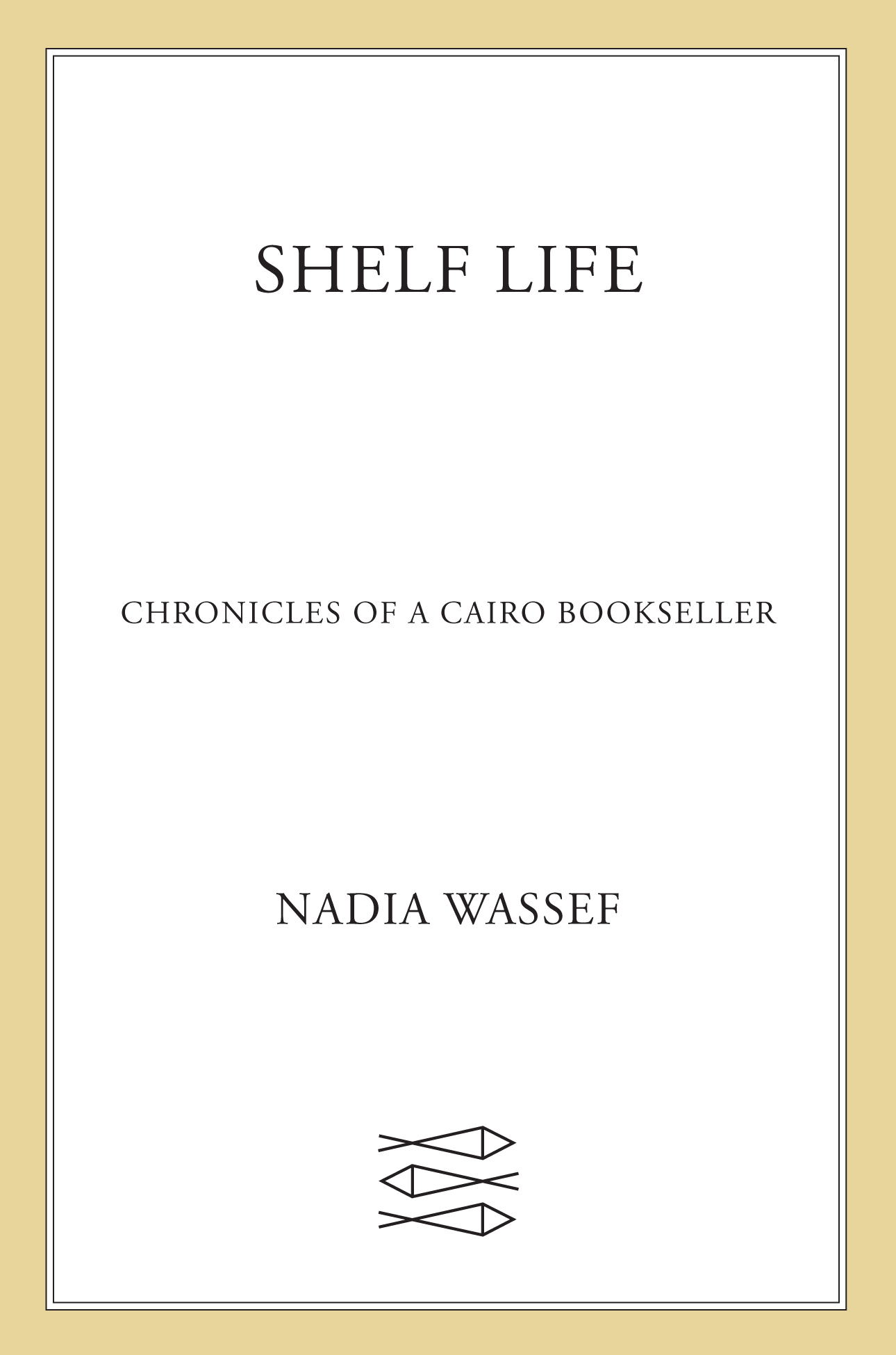

The author and publisher have provided this e-book to you for your personal use only. You may not make this e-book publicly available in any way. Copyright infringement is against the law. If you believe the copy of this e-book you are reading infringes on the authors copyright, please notify the publisher at: us.macmillanusa.com/piracy.
For Ramzi and Faiza, who made it all possible.
For Hind, who hears every heartbeat.
For Zein and Layla. I did my best.
This is a true story, though some names have been changed.
I was seven years old when members of the Muslim Brotherhood assassinated Anwar Sadat, and his vice president, Hosni Mubarak, took over, in 1981. I was a thirty-seven-year-old bookseller with ten bookstores, 150 employees, two masters degrees, one ex-husband (from here on known as Number One), one second husband (Number Two), and two daughters, when Mubarak was removed from power in 2011.
But our story begins long before the Egyptian revolution, and before the series of uprisings known as the Arab Spring. For most of my life, I have lived in Zamalek, a neighborhood on an island in a river surrounded by a desert: coordinates thirty degrees north, thirty-one degrees east. Zamalek, a district of western Cairo, reclines in the middle of the Nile. Legend has it that Cairo is named after the planet Mars, Al-Najm Al-Qahir, which was rising on the day the city was founded. She is known as al-Qahira, the feminine for vanquisher.
On Zamaleks main pedestrian and traffic artery, 26th of July Street, stand two sister buildings called the Baehler mansions. Their high ceilings, courtyards, and stucco flourishes suggest a glorious past. Air-conditioning compressors tenaciously cling to balcony railings, loose cables collect dirt and scraps of paper, and laundry hangs in the heat. A string of businesses lines the street: Nouby, the antiques dealer; Cilantro, the coffee shop; Thomas Pizza; the Bank of Alexandria; and a windowed corner store, Diwanthe bookstore that my sister, Hind, and I founded in March 2002. In the years after, Hind and I opened sixteen locations (and closed six) across Egypt, but each one of our stores emulates the look and feel of this one, our flagship, our firstborn.
Hind and I conceived of Diwan one night in 2001, over dinner with our old friends Ziad, Nihal, and Nihals then husband, Ali. Someone posed the question: If you could do anything, what would you do? Hind and I offered the same answer. We would open a bookstore, the first of its kind in Cairo. Our father had died recently from a merciless motor neuron disease. As lifelong readers, we had turned to books for solacebut our city lacked modern bookstores. In Egypt at the turn of the millennium, publishing, distribution, and bookselling were worn-out from decades of socialism gone awry. Beginning under the rule of Gamal Abdel Nasser, the second president of Egypt, through Anwar Sadat (the third) and then Hosni Mubarak (the fourth), the states failure to address the population boom led to illiteracy, corruption, and diminished infrastructure. In an effort to suppress dissent, each political regime had taken control of cultural output. Writers became government employees; literature died many successive slow and bureaucratic deaths. Few people in Egypt seemed interested in reading or writing. Starting a bookstore at this moment of cultural atrophy seemed impossibleand utterly necessary. To our surprise, our dinner companions were equally interested. That night, we became five business partners: Ziad, Ali, Nihal, Hind, and me. In the months that followed, we discussed, networked, and planned incessantly. Then, Hind, Nihal, and I got to work. And it was through that shared toil that we became chosen sisters, the three women of Diwan.
As people, Hind, Nihal, and I could not have been more different. Hind is private and fiercely loyal, Nihal is spiritual and generous, and Im a doer. As business partners, we tried to be better versions of ourselves, failing more often than not. We divided work based on preference and passion: Hind and I were best with books, and Nihal was best with people. These divisions were never clear-cut. We all found common ground in language. We devoted our attention and our labor to words. We were proud of Egyptian culture and eager to share it. We had no business plan, no warehouse, and no fear. We were unburdened by our lack of qualifications, and we were ignorant of all the challenges that lay ahead. We were young womenI was twenty-seven, Hind was thirty, and Nihal was forty. Over the next two decades, we would hold one anothers hands through marriages, divorces, births, and deaths. We would confront the difficulties of running a business in a patriarchal society: navigating harassment and discrimination, cajoling bureaucratic despots, and becoming fluent in Egypts censorship laws in the process.
From the beginning, we knew that our bookstore couldnt be a relic of the past. It had to have a purpose and a vision. Every aspect had to be intentional, beginning with the name. One afternoon, our mother, Faiza, listened politely as Hind and I grappled with this dilemma. Underwhelmed by our suggestions, and eager to return to her lunch, she proposed Diwan. She enumerated its translations: a collection of poetry in Persian and Arabic, a meeting place, a guesthouse, a sofa, and a title for high-ranking officials. Diwani was a type of Arabic calligraphy. She paused, then added that the word worked phonetically in Arabic, English, and French. She returned to the plate in front of her. We were dismissed.
Empowered by our name, we approached Nermine Hammam, a graphic designer also known as Minou, to help us build our brand. Her humor was swift and biting, her gummy smile all-knowing. Minou asked Hind, Nihal, and me to describe Diwan as if she were a person. We told her that she was a person, and this was her story:
Diwan was conceived as a reaction to a world that had stopped caring about the written word. She was born on March 8, 2002coincidentally, International Womens Day. She is larger than the space she occupies. She welcomes and respects others in all their differences. Like a good host, she invites patrons to stay a while longer in her caf. In principle, she is anti-smoking; she knows that most places in her homeland arent, but she is resolved to stand for better. She has nobler ideals than her surroundings permit. She is honest, but she will not punish thieves. She is sincere, and insists on weeding out those who arent. She doesnt like numbers. She doesnt like the binary world that surrounds her, and she is set on changing it, one book at a time. She believes that North and South, East and West are restrictive terms, so she offers books in Arabic, English, French, and German. She brings people and ideas together.
Minou translated our description into a logo. She wrote D-I-W-A in an eccentric black font, adding the N in Arabic. This last lettera nod to nuun al-niswa and nuun al-inathgenders verbs, adjectives, and nouns to the feminine. Minou surrounded the entire word with tashkeel, or diacritics.

Not only did Minou design a logo, she created a brand that could grow and change. She invented ways for Diwan to spread: bags, bookmarks, cards, candles, wrapping paper, pens, pencils, and wallpaper. The Diwan shopping bag became a cultural status symbol on the streets of Cairo. In later years, when I glimpsed one of our bags on a London street, or a New York subway, the feeling was electrifying.
Font size:
Interval:
Bookmark:
Similar books «Shelf Life»
Look at similar books to Shelf Life. We have selected literature similar in name and meaning in the hope of providing readers with more options to find new, interesting, not yet read works.
Discussion, reviews of the book Shelf Life and just readers' own opinions. Leave your comments, write what you think about the work, its meaning or the main characters. Specify what exactly you liked and what you didn't like, and why you think so.


